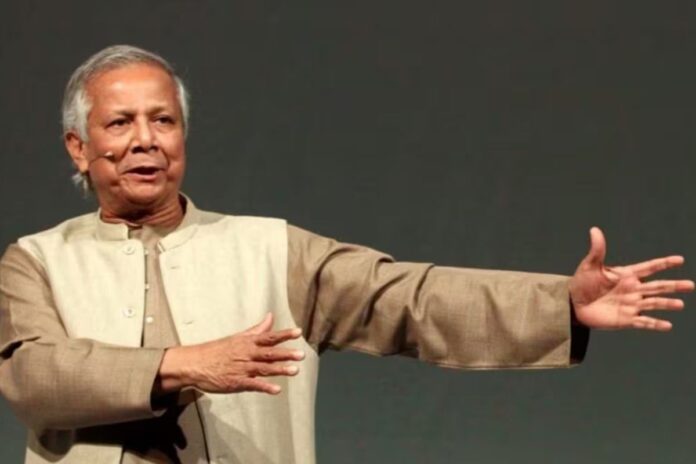In a surprising move, Bangladesh has terminated a key internet transit deal with India, a decision originally proposed under the regime of Sheikh Hasina. The agreement would have allowed Bangladesh to act as a transit point for supplying internet to India’s northeastern states, also known as the Seven Sisters. This decision raises questions about the motivations and implications for both countries, especially amid shifting regional dynamics and evolving diplomatic ties.
The Internet Transit Proposal
The initial plan, proposed in 2023, involved using Bangladesh’s Akhaura border to supply internet to India’s Northeast with bandwidth sourced from Singapore. Two firms, Summit Communications and Fiber@Home, were to spearhead the project in partnership with India’s Bharti Airtel. This initiative was expected to significantly improve internet speed and connectivity for the region, which currently relies on submarine cables running from Chennai, spanning a distance of 5,500 kilometers. The lengthy distance results in slower speeds and higher maintenance challenges.
Muhammad Farid Khan, chairman of Summit Communications and brother of Awami League presidium member Faruk Khan, was a notable figure in this deal. He also shares close ties with Sheikh Hasina’s son, Sajeeb Wazed Joy. Under the Hasina regime, both companies benefited from lucrative contracts and licenses, cementing their roles in Bangladesh’s telecommunications sector.
The Strategic Significance of the Deal
For India, the deal represented a strategic opportunity to bolster connectivity in the Northeast, a region Prime Minister Narendra Modi has emphasized as crucial to the country’s growth narrative. Modi highlighted the government’s commitment to integrating the Northeast into India’s development story, saying, “In the last decade, we have seen a wonderful journey of the development of the Northeast, but it was not easy. We have taken every possible step to connect the northeastern states with India’s growth story.”
Enhanced internet connectivity through Bangladesh would have been a game-changer for the region, improving speed, reliability, and overall digital infrastructure. However, with the cancellation of this deal, India’s ambitious plans for the Northeast face new challenges.
Why Was the Deal Cancelled?
Under the interim government led by economist Muhammad Yunus, the Bangladesh Telecommunication Regulatory Commission (BTRC) decided to terminate the arrangement. BTRC chairman Md Emdad ul Bari explained to the Daily Star, “The guidelines do not permit such ‘transit’ arrangements.”
The regulator argued that the agreement could compromise Bangladesh’s long-term strategic interests. According to a BTRC document, allowing India to use Bangladesh as a transit hub would strengthen India’s dominance as an internet hub while potentially undermining Dhaka’s aspirations to become a Point of Presence (PoP) for global content delivery networks (CDN) such as Meta, Google, Akamai, and Amazon.
Aminul Hakim, president of the Bangladesh Internet Governance Forum, echoed these concerns, stating, “Ultimately, the bandwidth from India will end up in India, reducing Bangladesh to merely a transit point.”
Shifting Diplomatic Tides
This development comes at a time of strained ties between India and Bangladesh following the ouster of Sheikh Hasina in August after a massive uprising ended her 15-year rule. Misri’s visit marks the first high-level engagement between the two nations since the interim government came to power.
Foreign Secretary Vikram Misri arrived in Dhaka for a day-long visit, holding talks with his Bangladeshi counterpart Mohammad Jashim Uddin. Misri also met the interim government’s de-facto foreign minister Mohammad Touhid Hossain and is scheduled for a courtesy call with Muhammad Yunus.
However, Bangladesh under Yunus appears to be recalibrating its regional partnerships, signaling a potential pivot away from India and toward Pakistan. Recent developments include the resumption of direct flights and maritime links between Bangladesh and Pakistan after nearly five decades. Additionally, Bangladesh removed a security clearance requirement for Pakistani citizens applying for visas, while Pakistan waived visa fees for Bangladeshi travelers.
Regional Implications
The termination of the internet deal and Bangladesh’s evolving foreign policy signal a shift in South Asia’s geopolitical dynamics. While the internet transit arrangement was primarily a technical initiative, its cancellation reflects broader strategic calculations. Dhaka’s aspirations to position itself as a regional hub for internet and digital services appear to have played a pivotal role in the decision.
For India, the move underscores the need to diversify its connectivity options for the Northeast, which remains a critical yet underserved region. Strengthening domestic infrastructure and exploring alternative partnerships will be essential to offset the impact of the cancellation.
What’s Next?
The termination of the internet transit deal is a setback for India’s Northeast connectivity plans and highlights Bangladesh’s focus on asserting its strategic autonomy in the digital domain. While the decision reflects Dhaka’s ambitions to emerge as a regional digital hub, it also marks a potential turning point in Indo-Bangladeshi relations. With diplomatic ties strained and regional alignments shifting, the coming months will reveal the long-term implications of this development for both nations.

